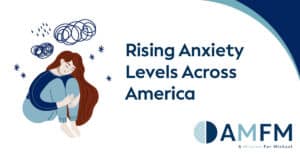Schizoaffective disorder is a condition that has been gaining notoriety only in recent times. Considering how rare it is (both bipolar disorder and schizophrenia are twice as common) it’s all too often misdiagnosed, and misunderstood.
Schizoaffective disorder is a mood disorder, much like Manic Depressive Disorder (also known as Bipolar Disorder, or bipolar affective disorder.) It’s characterized by dramatic fluctuations in mood and thought, ranging from manic phases to periods of severe depression. However, it differs from bipolar disorder in one important way: psychosis.
Understanding How Psychosis Acts
Psychosis is a state of a break from reality, usually manifesting itself in hallucinations (seeing, hearing, feeling things that aren’t there) and/or delusions (believing something that is untrue, as in the case of paranoia.)
In fact, the best way to understand it might be in understanding the name itself. “Schizo” refers to psychosis, as in the case of schizophrenia. “Affect” is the clinical term used to identify mood disorders (such as bipolar affect disorder.) Therefore, schizoaffective disorder is an intersection of psychosis and mood disorder.
How to Know the Difference
The most important identifying factor that enables us to identify whether something is bipolar disorder, or schizoaffective disorder is this: do you have symptoms of psychosis even when you are not experiencing either a manic or depressive phase? A patient with bipolar disorder might experience psychosis during manic or depressive phases, but the rest of the time, they’re free from those symptoms.
Living with Schizoaffective Disorder
Because schizoaffective disorder is so little understood, we’re still in the process of learning how to effectively treat it. However, most patients find success by tag-teaming medical treatment for both psychosis and mood disorders.
Here at A Mission for Michael, we have a team full of clinicians with a Master’s degree or higher to give effective care to patients with schizoaffective disorder. We understand that the additional complications of psychosis can make it especially difficult to deal with a diagnosis of schizoaffective disorder. However, we also believe that it’s possible to find healing and regain control over mental health with targeted treatment and clinical intervention.








